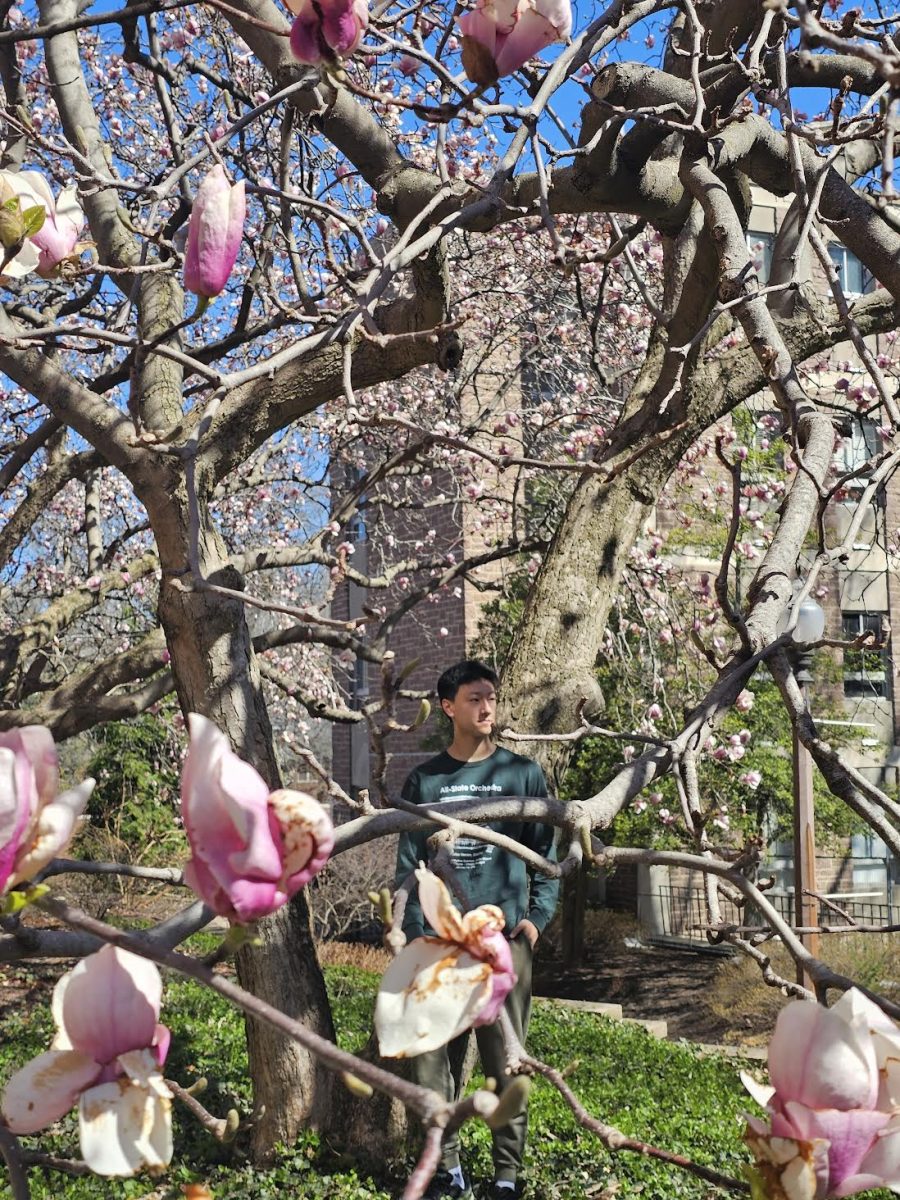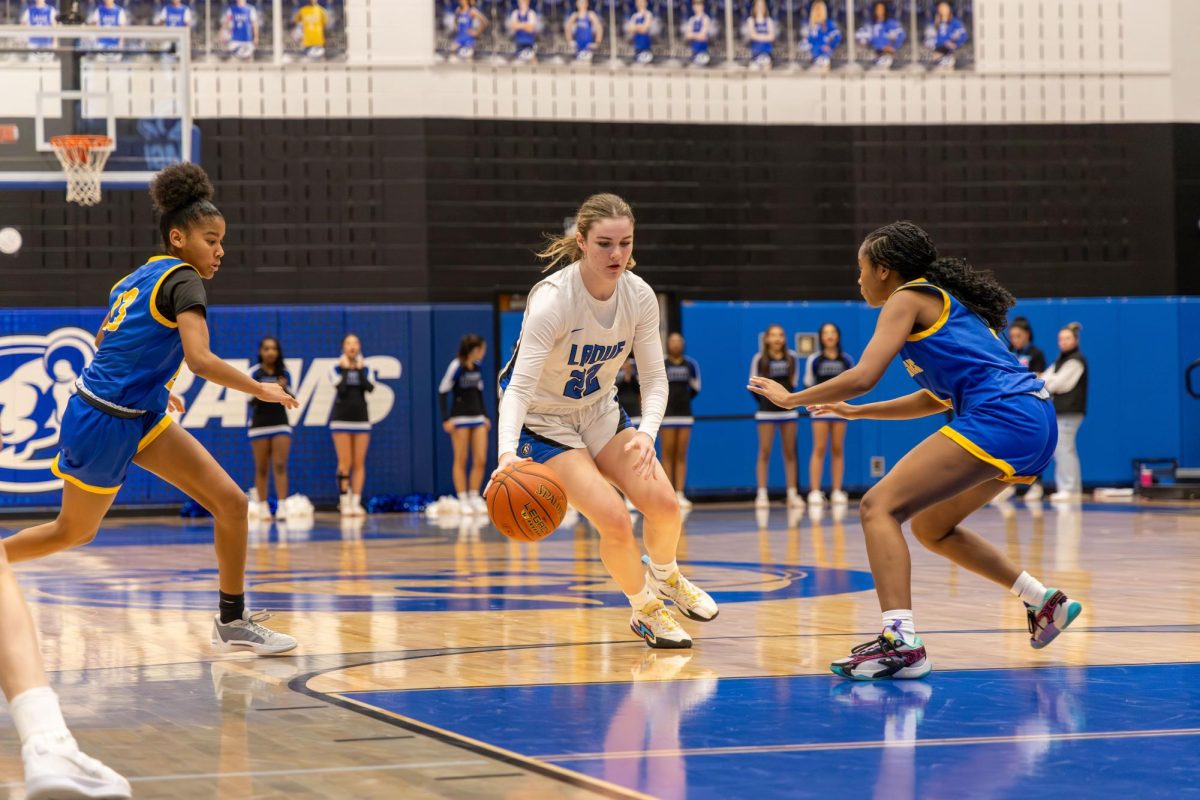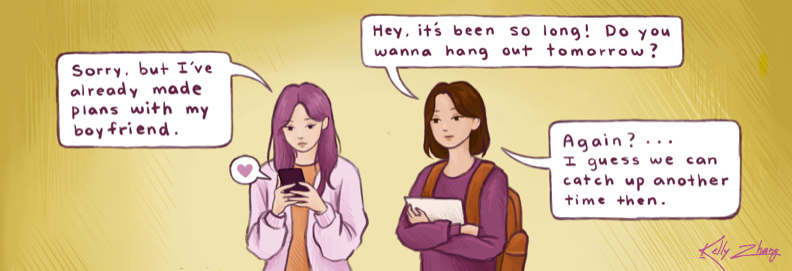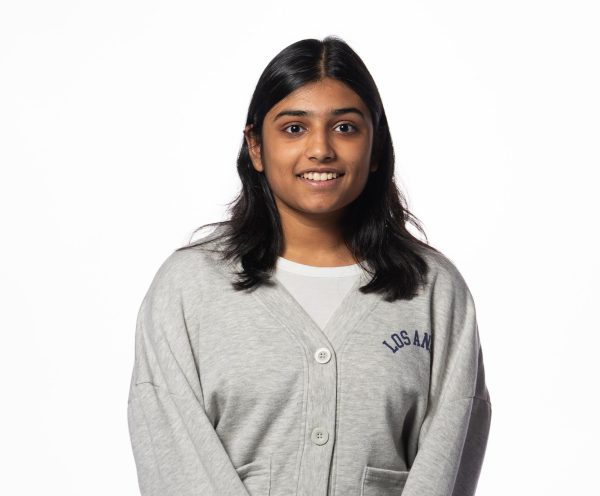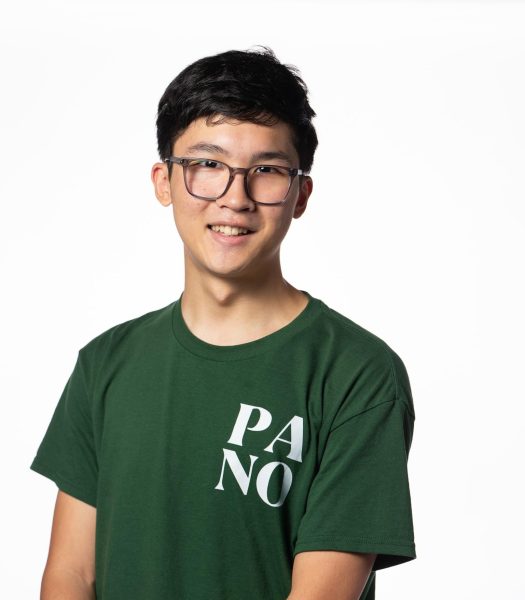The buzz and chatter of raised voices echo around the brightly lit gym as sixth and seventh graders stretch and jog in unison. At the center of the gym, Sabra Fink (11), only a few years older than the students, leads the physical education class, which is evenly split to include children with disabilities.
This is routine for Fink; a schedule she’s followed since she was accepted into the education track of the Catalyst program and began teaching physical education and an 8th-grade reading class. Every day at exactly 1:15 P.M., Fink transforms from high school student to assistant teacher, trading homework and club activities for organizing group projects, cheering on her students during assignments and most of all, making them feel welcome.
“I’ve always liked to work with kids,” Fink said. “I thought this would help me get involved in a classroom and hopefully pursue that as a career.”
Working at the middle school has helped Fink discover what she enjoys about education.
“I’m still learning how everything works, but I think it’s fun,” Fink said. “I personally don’t want to be in an office, working all day. I’d rather be more involved.”
Fink is mentored by Ladue Middle School essential skills teacher Linda Deposki, who she assists in teaching reading to kids.
“I have found [Catalyst] to be very well put together,” Deposki said. “Sabra is getting a chance to see if this kind of work actually feels right to her.”
Catalyst has helped Fink’s teaching skills improve as well.
“Sabra has become far more open,” Deposki said. “The kids are more comfortable with her too. They will go to her to ask a question, [and] I see her glow when they do. You can tell she loves it when they trust her to help them.”
As an assistant teacher, Fink focuses on supporting and encouraging her students.
“I try to help them feel like they’re understood,” Fink said. “Sometimes they may [feel] brushed off. You definitely need to have patience.”
This policy of inclusion and acceptance is something Deposki emphasizes in teaching.
“Inclusion is big for everyone, not just the students with disabilities [or] on the spectrum,” Deposki said. “When you take the time to understand someone and include them, you make them feel both wanted and needed. A good teacher does this. ”
Fink’s efforts to make the learning environment an enjoyable one have not gone unnoticed. According to Deposki, the kids Fink helps appreciate her passion.
“They love her,” Deposki said. “One student literally stood up and cheered when she heard that Ms. Sabra was coming back to our class for a second semester. The only thing I wish is that Sabra could be with us every day. My students love seeing her.”


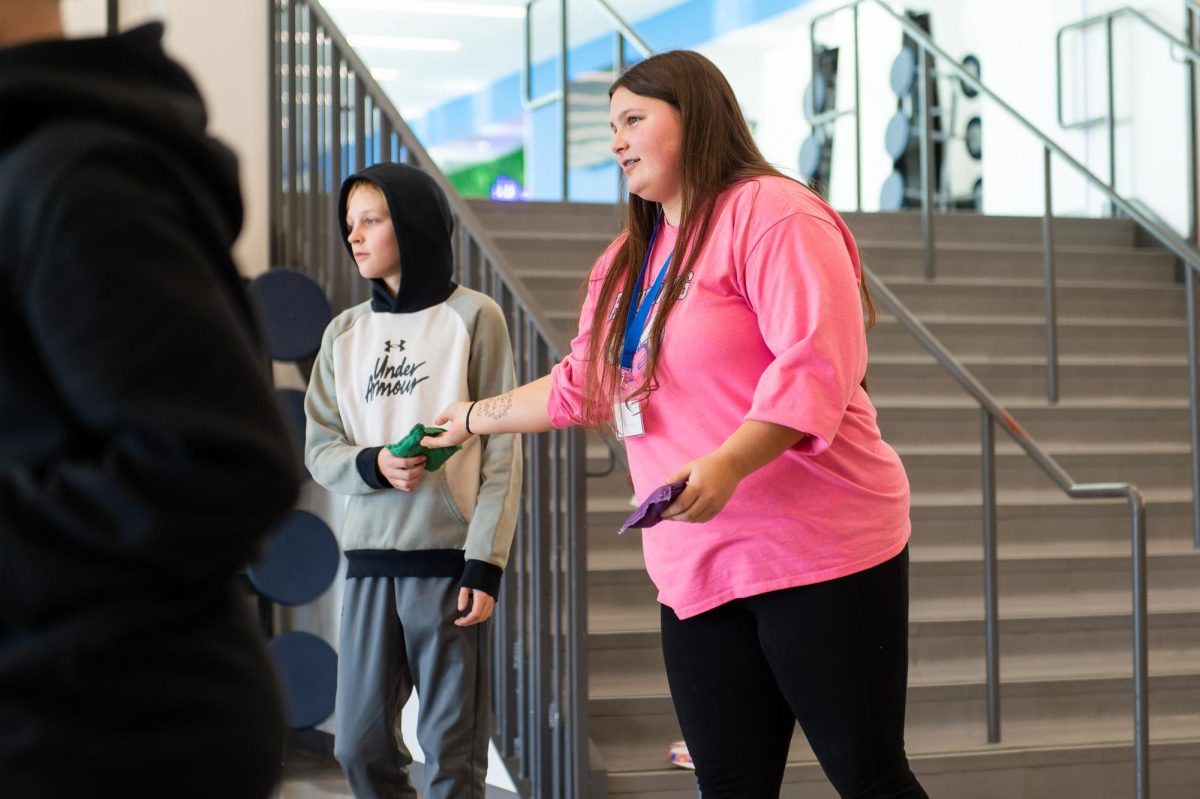
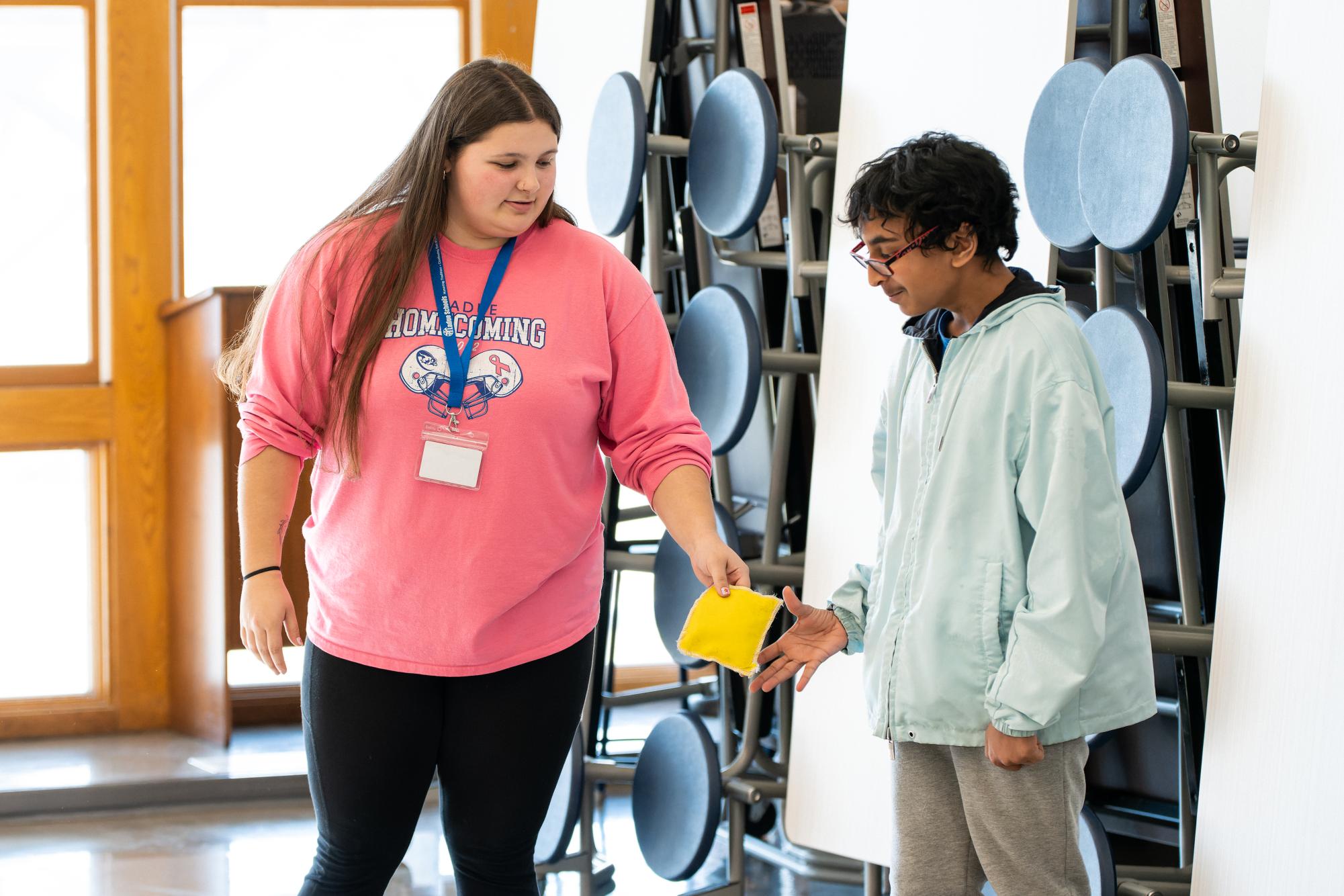
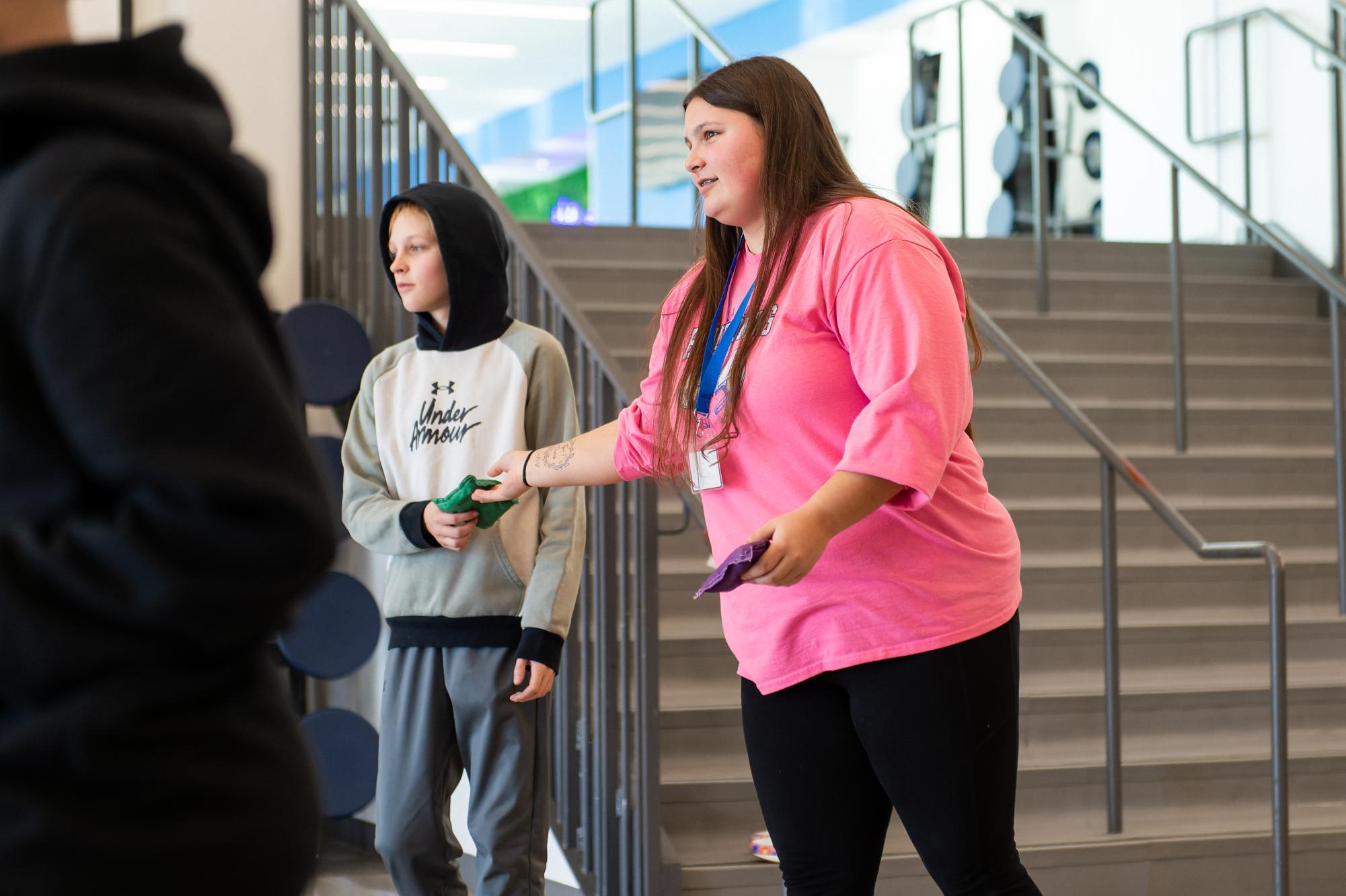
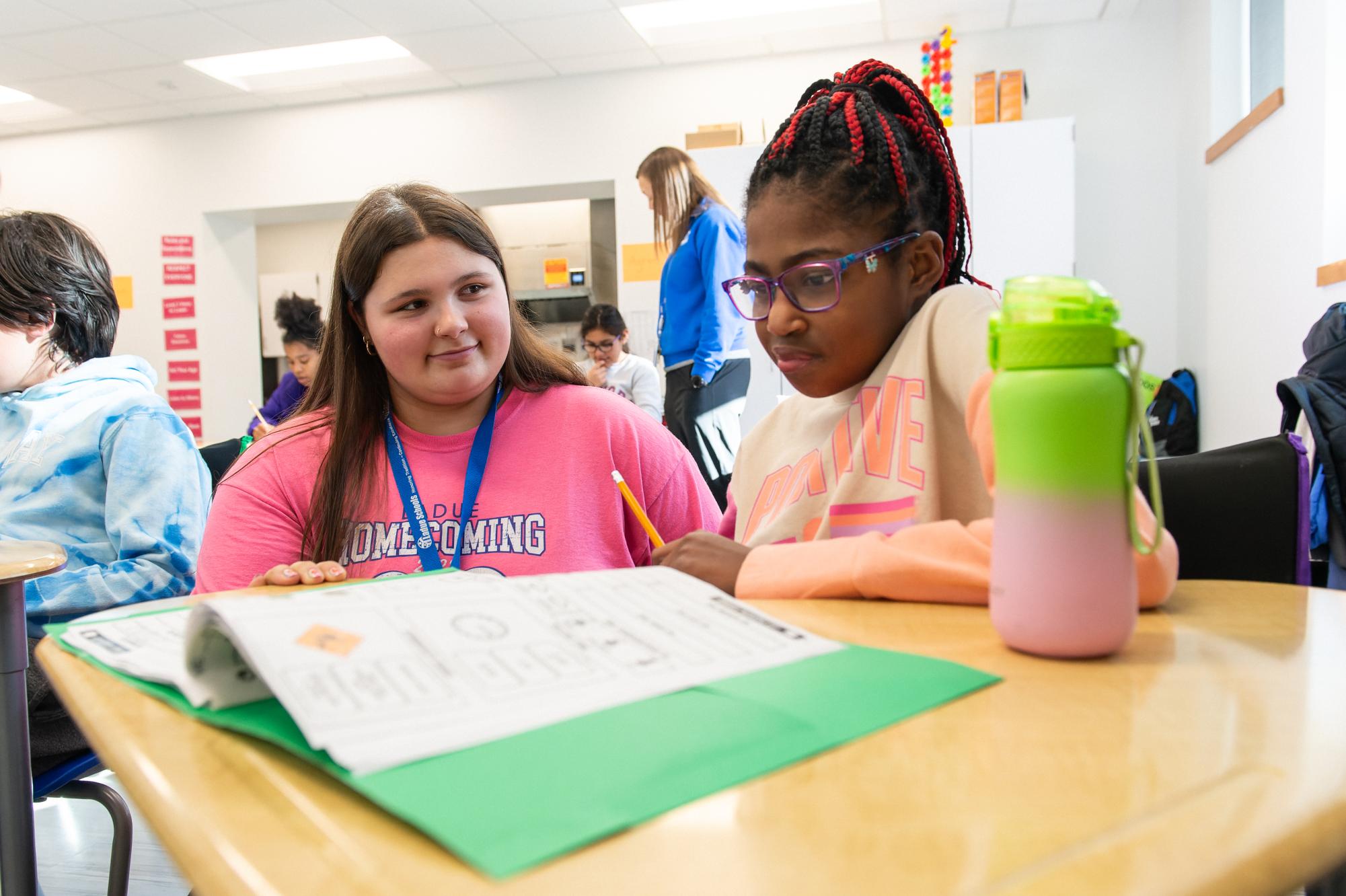
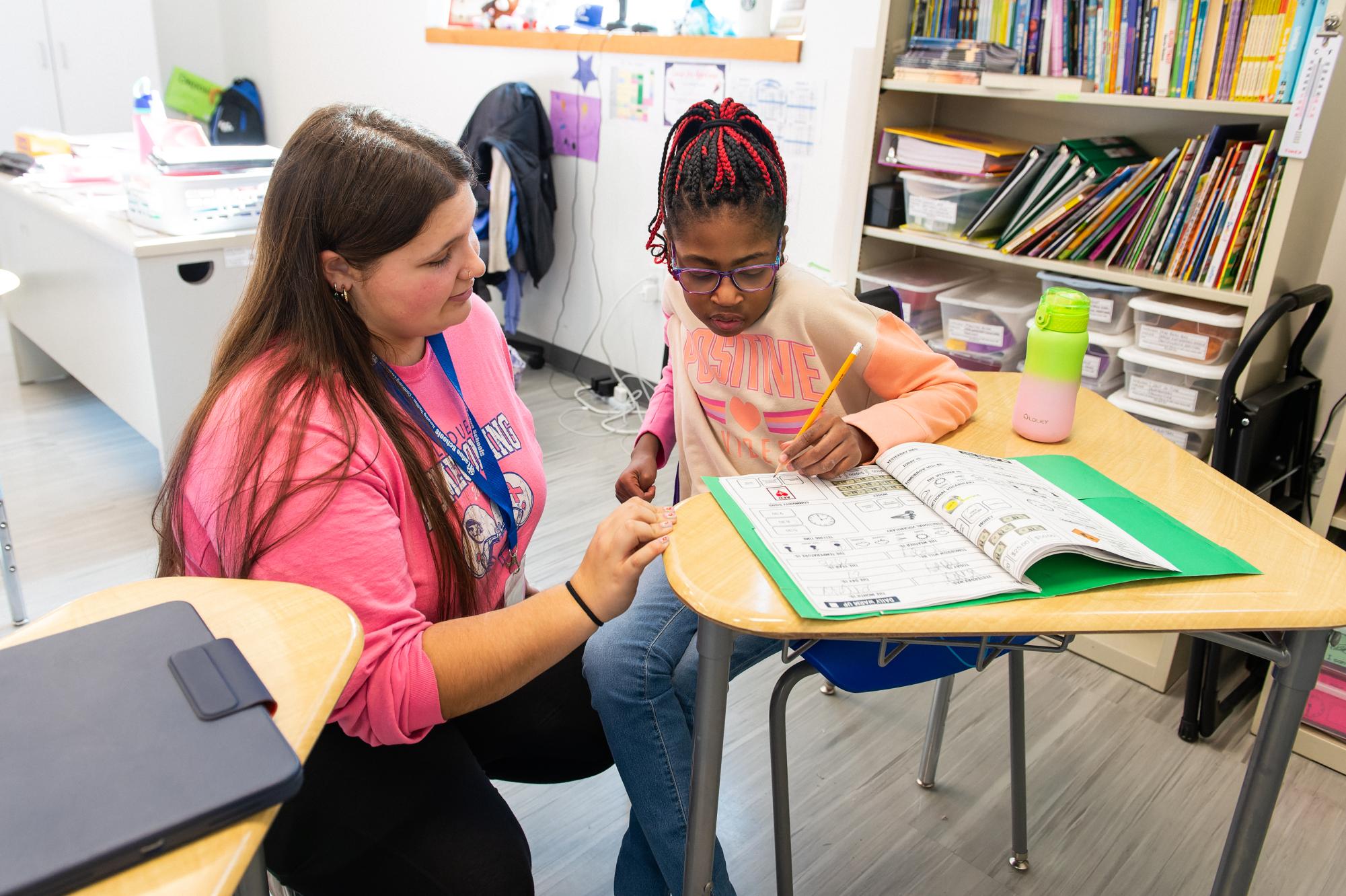
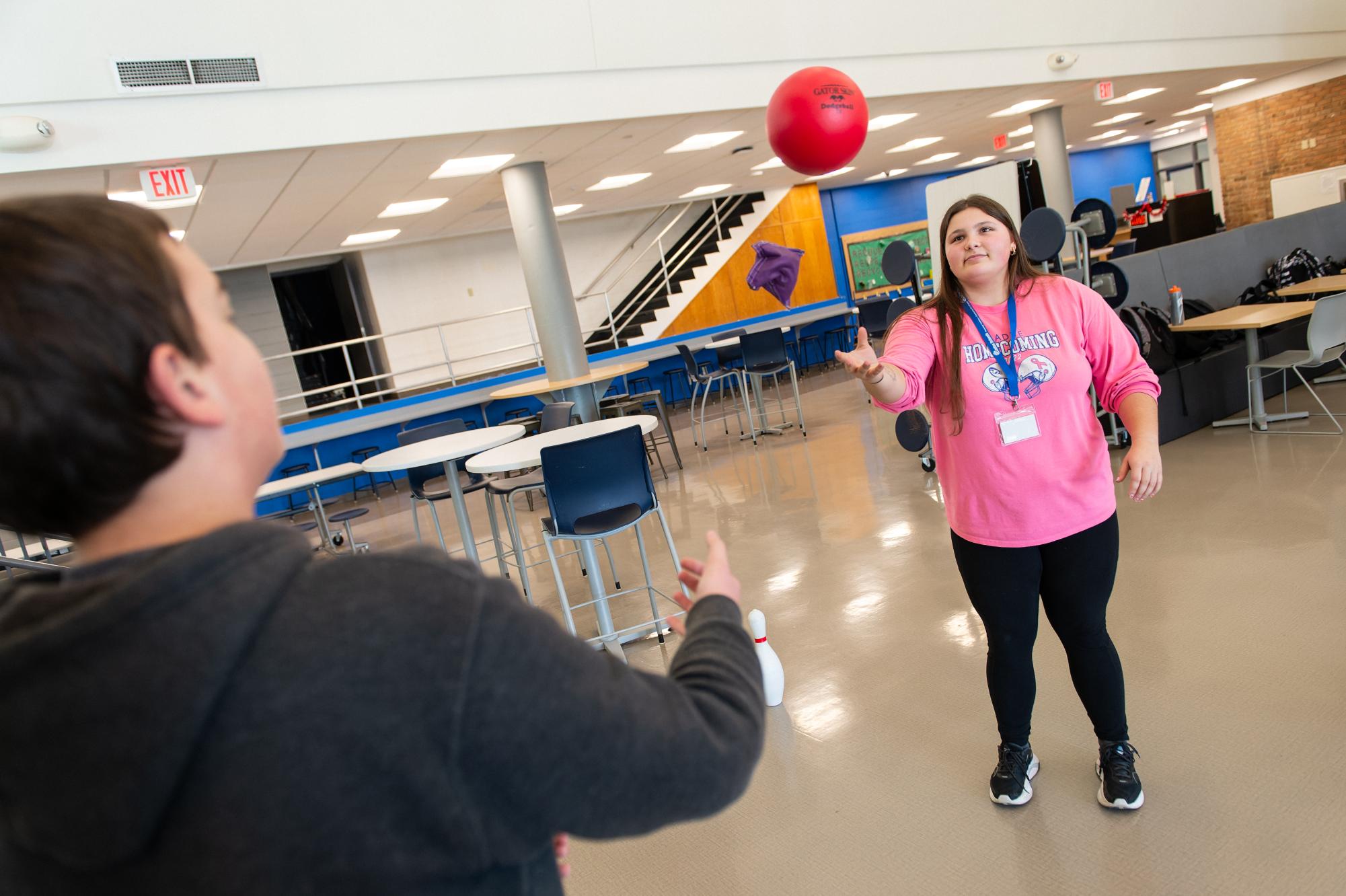
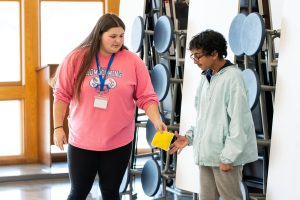
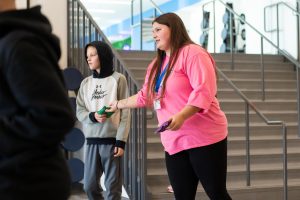
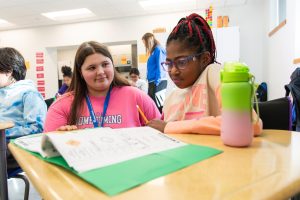
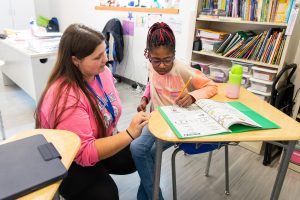
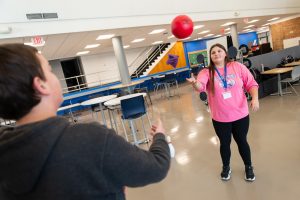
![A client poses for a photo. Although Hannah Hiken (12) enjoys painting nails for others, she prefers to have control of her own artistic freedom. “I do [nails] on myself a lot. I think that's what I really enjoy most,” Hiken said. “Doing it on myself, because I can choose everything I want to do.”
Photo courtesy of Hannah Hiken](https://laduepublications.com/wp-content/uploads/2025/05/IMG_1740-1200x986.jpeg)
![Duckham spends large amounts of her free time reading. Dealing with fewer classes this year, Duckham’s bookshelf at home has seen more use. “I call every book my favorite, but not truly every book [is]. I wrote my dissertation on Herman Melville, so I guess I'd have to say Moby Dick, is definitely one of my all time favorites,” Duckham said. “I really do love both British and American novelists of the 19th century. I tend to prefer nonfiction over fiction. For some reason, I think there's so many great non fiction writers, and I love the whole idea of something being true.
(Photo Courtesy of Janet Duckham)](https://laduepublications.com/wp-content/uploads/2025/05/IMG_6605-1200x900.jpeg)
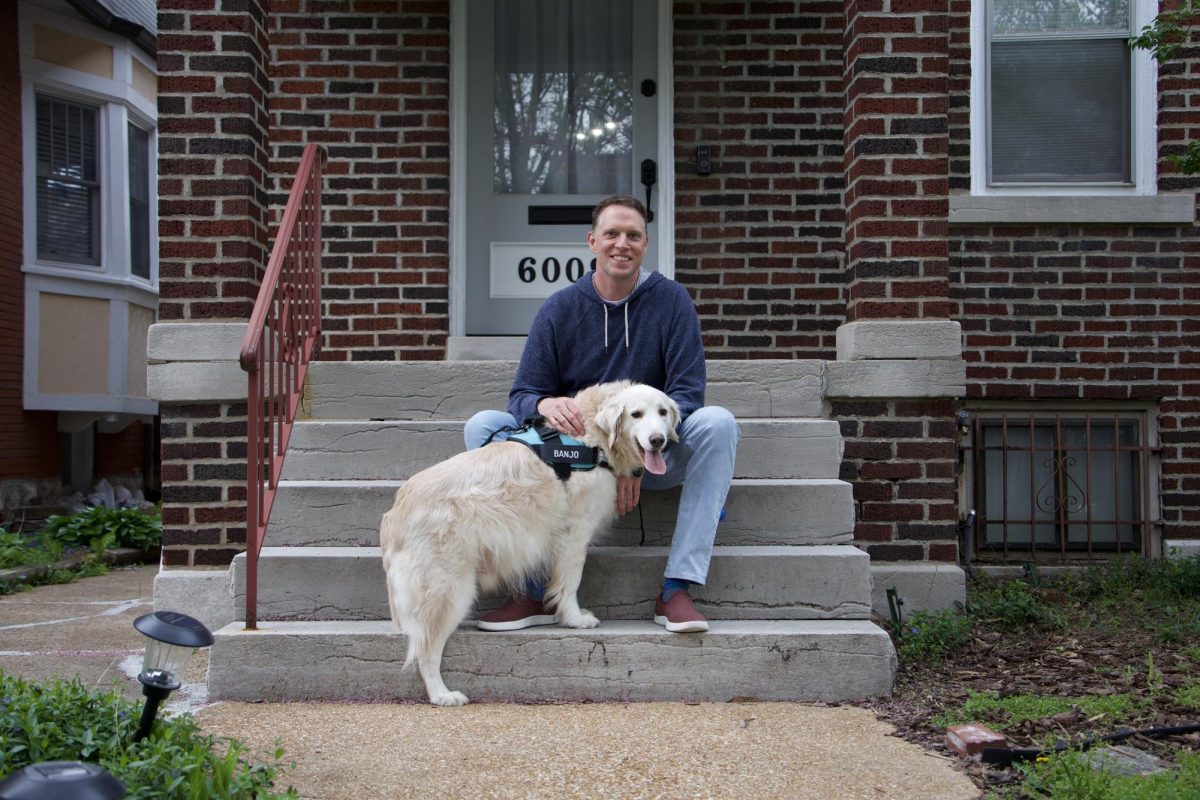
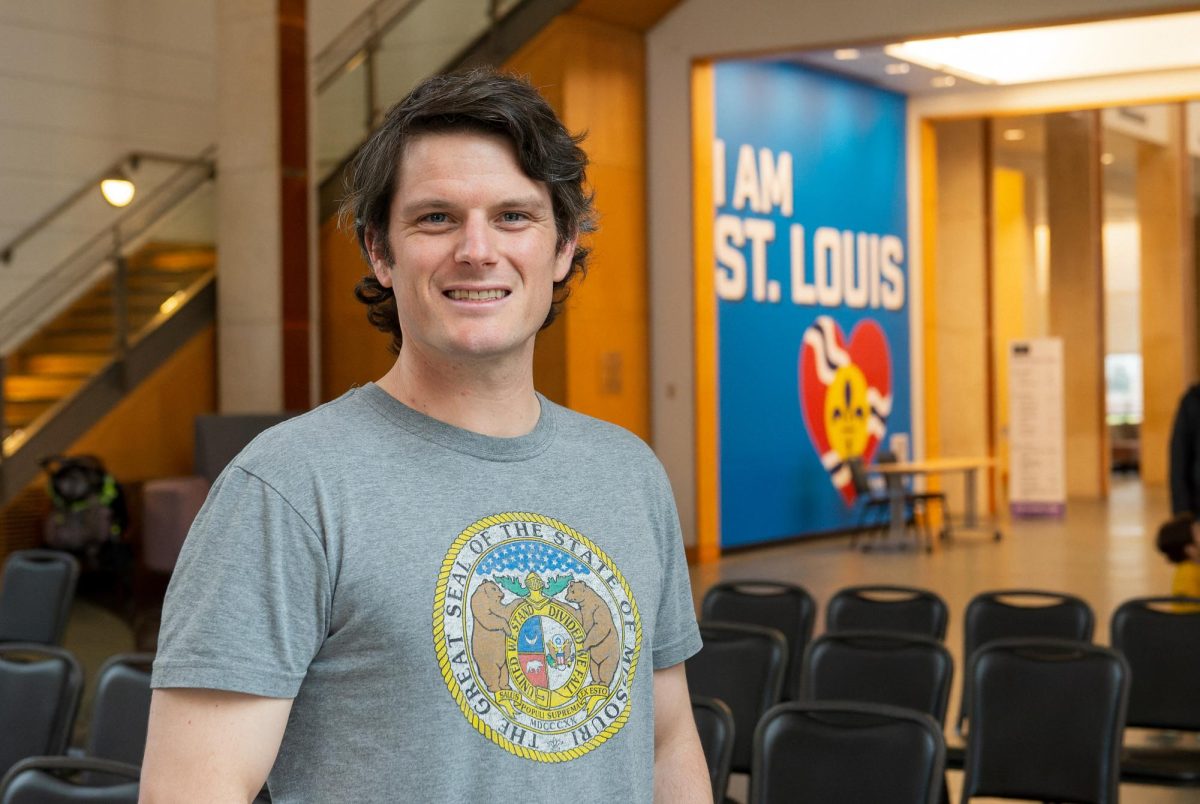
![ABOVE: Duncan Kitchen (10) plucks the strings of his guitar at his home. Duncan’s older brother inspired him to start playing the guitar two years ago. “On any given day [in Alaska], you could walk up the mountain start a campfire [and] play guitar,” Duncan said. (Photos by Vincent Hsiao)](https://laduepublications.com/wp-content/uploads/2025/04/Hsiao_20250325_DuncanKitchen_010-1200x839.jpg)
